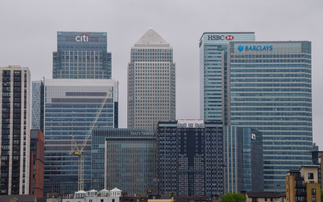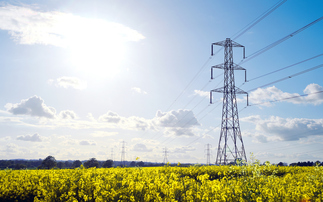BP's dramatic net zero pledge may lack some key details, but it marks yet another important step forward for global decarbonisation efforts
What to make of BP's pledge to become an ally in the pursuit of a "rapid transition" towards a net zero economy?
The response from environmental campaigners has been unsurprisingly sceptical. "Leaves urgent questions unanswered," said Greenpeace. "PR spin," said 350.org. "Inadequate and cycnical," said Friends of the Earth.
This was to be expected. Activists job is to demand more and faster action, and in fairness newly installed CEO Bernard Looney did not help himself with today's refusal to be drawn on the detail of precisely how he intends to build a net zero compatible business. Any change movement needs an inside and an outside game and as such there is little chance of Greenpeace and co tempering its campaign against BP anytime soon.
More interesting, however, was the reaction of those climate concerned investors and shareholders who have the ability to push BP to accelerate its strategy - or pivot back to its fossil fuel roots.
The share price did not plummet as an oil major essentially said it wanted to deliver a net zero world and was prepared to invest less in oil exploration and more in clean tech as a result. Such an outcome would have been unthinkable a few short years ago.
Meanwhile, the influential Carbon Tracker think tank said it looked forward to seeing more detail, but acknowledged that "BP's recognition of the finite emissions limits imposed on our planet is a big step forward". The Climate Action 100+ group of institutional investors called it a "very welcome announcement".
The big question, of course, is what happens next? When Looney says the company will "invest more in low carbon businesses - and less in oil and gas - over time", how much time is he thinking? When he says the company will assess its exploration strategy, how will that manifest itself in terms of capital spending allocated? When he insists BP will still be producing oil and gas in 2050 is his crystal ball working or not?
These are the crucial decisions BP and its peers now need to make as they attempt to make good on their net zero pledge. It is a supremely difficult balancing act. Fail to actually reallocate capital at scale and accusations of greenwash will multiply and climate impacts will escalate. Ditch all exploration activity and twitchy shareholders may rebel against the strategy and ask where the revenues are coming from to fund this transition.
The transition BP appears to be proposing is not yet fast enough, nor is it Paris Agreement compatible. But it is taking a hedging position that could allow it to lean into the transition as EV sales soar and clean tech competitiveness increases.
One of the most important reports of the past year came from Carbon Tracker last autumn. It showed that there is huge variations in the level of reforms oil majors have to make to get onto a net zero trajectory.
For example, it found that while none of the leading oil and gas companies are currently on track to be aligned with the Paris Agreement by 2040, Shell and BP's production levels would only need to reduce by 10 per cent and 25 per cent, respectively, while ConocoPhillips would face an 85 per cent cut and ExxonMobil would require production cuts of 55 per cent.
The oil and gas industry's climate strategies remain problematic and underpowered in myriad ways. But as BP demonstrated yesterday, not all oil majors are the same. Some are considerably closer to transforming themselves than others. The challenge now is to push them past the net zero tipping point. It is a challenge Looney himself seems to recognise.
A version of this article originally appeared in the BusinessGreen Overnight Briefing email, which is available to all BusinessGreen subscribers.









